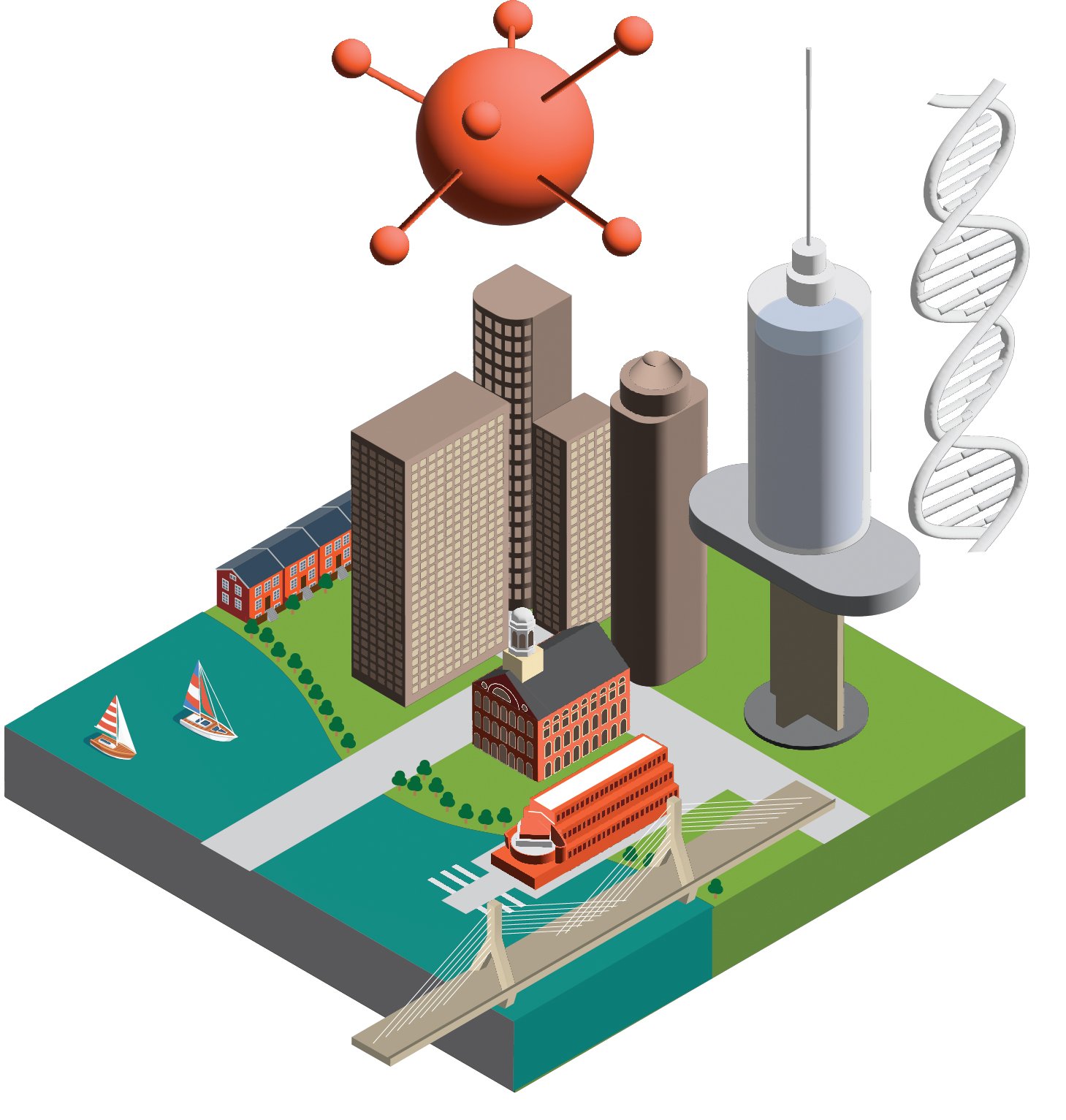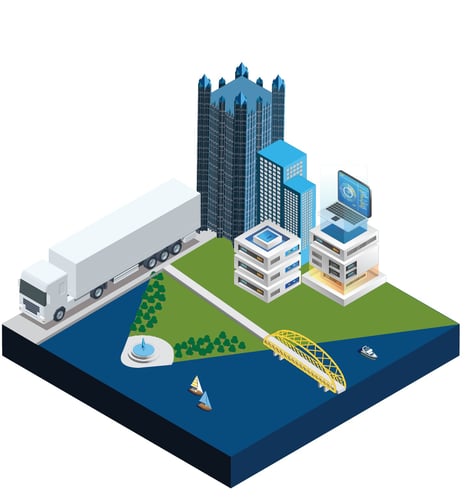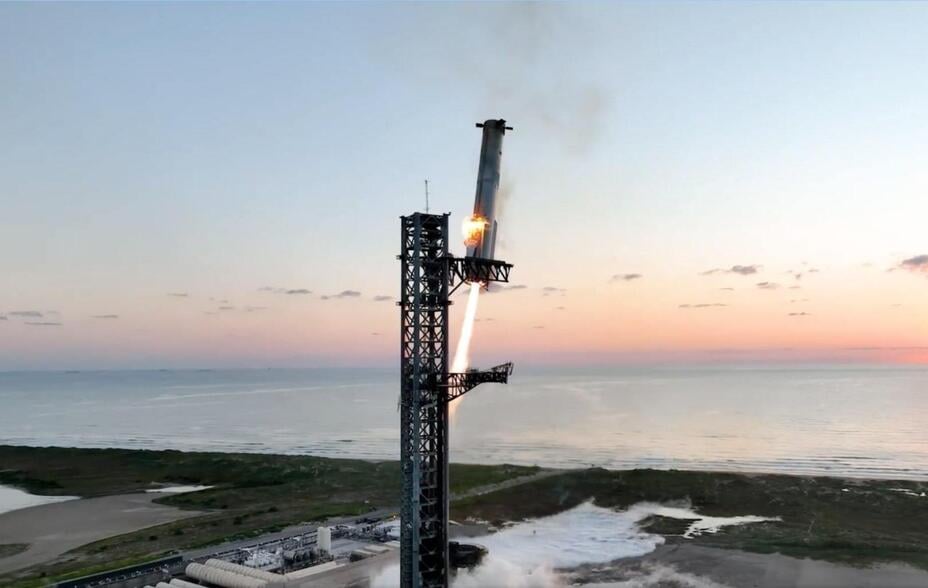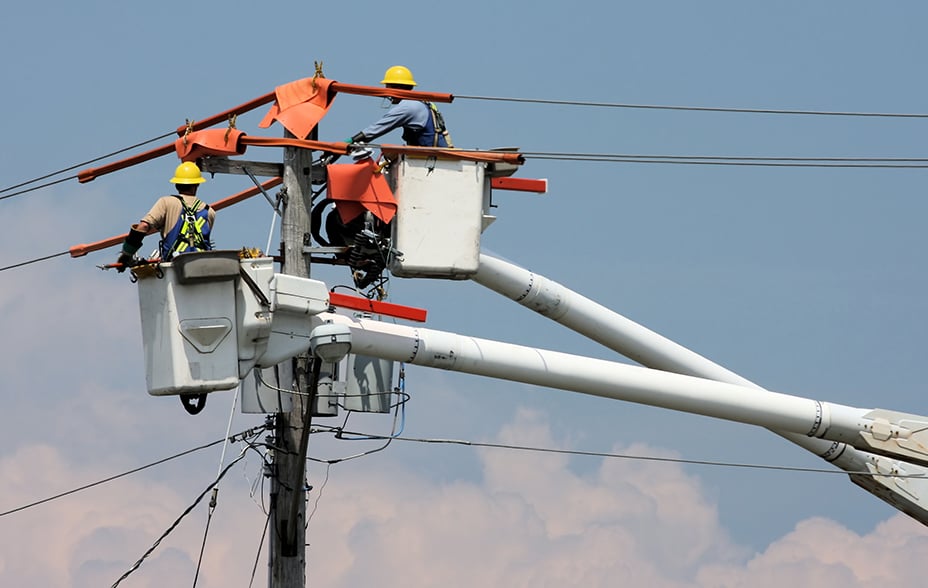
Please remember that the value of an investment can fall and you may not get back the amount invested.
Ten years ago, Scottish Mortgage managers’ hunt for transformational companies in the US rarely took them further than Silicon Valley. Now, their research takes them far beyond California, from Boston to Houston, Pittsburgh to Salt Lake City.
“We aim to own the most ambitious and exceptional growth companies in the world, public or private,” says Claire Shaw. “As more technology clusters form across the country, these concentrations bring big benefits to Scottish Mortgage portfolio businesses.”
Over 50 per cent of the companies held by the Trust are based in the US. Increasingly, they are headquartered hundreds or even thousands of kilometres away from the historic heart of northern California’s tech industry.
What accounts for the geographic shift? Shaw cites supportive “regional ecosystems”, comprising university research centres, alert venture capitalists and appropriately skilled workers. When these factors are present, entrepreneurial ambition tends to thrive.
In some cases, the availability of pre-existing infrastructure is a powerful lure, as is federal and local government support. Texas, a designated green energy hub, is a good example.
In other cases, it’s quality of life that beckons. Many US cities look affordable compared to Silicon Valley, where the cost of a simple three-bedroom home can easily top $1.5m. Lower state taxes and proximity to the outdoors add to the appeal.
Silicon Valley remains the red-hot centre of hi-tech, Shaw acknowledges. But, as our map illustrates, the last decade has seen a blossoming of potentially world-changing businesses across the US.
Boston’s biotech cluster
Massachusetts contains many of the planet’s most innovative biotechnology companies. The state has overtaken California as the global leader in biotech job growth, investment and infrastructure.
Cambridge-based Moderna, one of the Trust’s largest holdings, hit the headlines during the pandemic when its mRNA-based vaccines helped lead the fightback against Covid. Now, Moderna is repurposing the technology and using it as a platform to develop everything from better flu vaccines to personalised cancer therapies.
“It applies a Silicon Valley mentality to the drug industry,” Shaw says. “Moderna is ‘coding’ genes and proteins like software to produce drugs for flu strains and latent viruses such as herpes, and it’s pursuing a personalised cancer vaccine based on the genetic sequencing of a tumour.”
Other notable northern US innovators in the Trust’s portfolio include Insulet, a Boston-area company building insulin pumps for people with diabetes.
“Its pump can be connected to continuous glucose monitors, creating a closed-loop system almost like an artificial pancreas,” says Shaw. “Both types of diabetes are growing, which means more patients need constant monitoring of their glucose. Insulet’s pumps can be connected to the monitors and help patients’ levels stay within a safe range.”


Texas’s climate hub
The modern petroleum industry began in Texas in 1901, so it’s fitting that the US oil boom’s birthplace should be helping to mitigate its long-term effects. The state authorities are pushing to make it a green energy innovation hub. Tesla’s gigafactory in Austin, which opened in 2022, is a symbol of the area’s ability to attract manufacturers.
Texas is attracting some of the world’s leading companies in ‘cleantech’ thanks to strong universities, ample venture capital and highly trained energy workers whose skills are easily transferable from oil and gas.
One of the Trust’s private company holdings, Houston-based Solugen, is working to decarbonise the chemicals industry, a major CO₂ emitter. It’s replacing the fossil-fuel ‘feedstock’ found in cleaning products, fertilisers and concrete with sustainable alternatives such as corn sugar and biomass.
Climeworks, the world leader in carbon capture technology and another private holding, takes a more direct approach. The Swiss-based company recently made the state capital Austin its US base. Its technology sucks CO₂ from the air and stores it deep underground.
“It’s a negative emissions technology,” Shaw says. “It’s based on the assumption that abatement alone is not enough.” She cites the Biden administration’s $1.2bn support for a south Texas direct air capture hub, with the promise of thousands of new jobs.

Pittsburgh’s robotics row
A half-century ago, Pittsburgh was famed for its steel. Today, the rustbelt city has a reputation for research into self-driving technology, with a cluster of autonomous vehicle (AV) firms benefiting from the supportive environment.
Much of the credit for this transformation goes to Carnegie Mellon University. It had the foresight to start a robotics institute in 1979, when self-driving vehicles and AI chatbots were still science fiction.
Supported by local government, the university helped spawn a Pittsburgh neighbourhood dubbed Robotics Row, which is packed with AV startups and research labs.
One resident is Aurora, founded by former Uber and Tesla engineers. Its chief executive, Chris Urmson, formerly led Google’s self-driving car programme and is a Carnegie Mellon alumnus. Aurora develops software to drive trucks on highways, promising a more efficient transport network.
“The trucking industry has cult status in the US but has trouble attracting drivers in a tight labour market,” Shaw says. “It’s a really interesting company in that it’s not trying to develop the vehicles. Aurora develops the software then partners with truck companies such as Volvo and DAF Trucks’ parent, PACCAR.”
Utah’s silicon slopes
Salt Lake City ranked as the hottest jobs market in the United States in 2023, according to The Wall Street Journal. Utah’s booming tech sector can take much of the credit.
What makes the state so attractive? Affordable homes and access to the great outdoors help. So too do friendly business laws, tax incentives and readily available land for construction, according to the newspaper. Such selling points have helped make Salt Lake City and the next-door city of Lehi, known as Silicon Slopes, a magnet for tech companies.
Scottish Mortgage invests in Recursion Pharmaceuticals, a company aiming to use machine learning to industrialise drug discovery. “It’s running millions of miniaturised experiments based on cell analysis that would take a PhD student years and does it in a fraction of the time,” says Shaw.
Attracting talent to Utah is not a problem. Shaw recounts how Recursion’s chief executive, Christopher Gibson, described the ease of drawing workers to Utah: “He told us that if you create an incredible culture and an incredible company, you can recruit and retain people from around the world. That’s exactly what Recursion has done.”

Important information
Investments with exposure to overseas securities can be affected by changing stock market conditions and currency exchange rates. Scottish Mortgage has a significant investment in private companies. The Trust’s risk could be increased as these assets may be more difficult to sell, so changes in their price may be greater.
The views expressed in this article should not be considered as advice or a recommendation to buy, sell or hold a particular investment. The article contains information and opinion on investments that does not constitute independent investment research, and is therefore not subject to the protections afforded to independent research.
Some of the views expressed are not necessarily those of Baillie Gifford. Investment markets and conditions can change rapidly, therefore the views expressed should not be taken as statements of fact nor should reliance be placed on them when making investment decisions.
Baillie Gifford & Co Limited is wholly owned by Baillie Gifford & Co. Both companies are authorised and regulated by the Financial Conduct Authority and are based at: Calton Square, 1 Greenside Row, Edinburgh EH1 3AN.
The investment trusts managed by Baillie Gifford & Co Limited are listed on the London Stock Exchange and are not authorised or regulated by the Financial Conduct Authority.
A Key Information Document is available by visiting bailliegifford.com
115433 10049510




